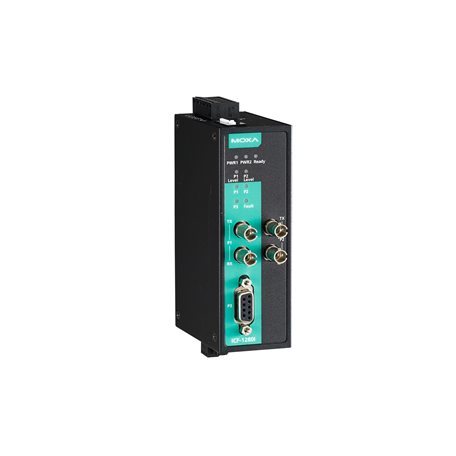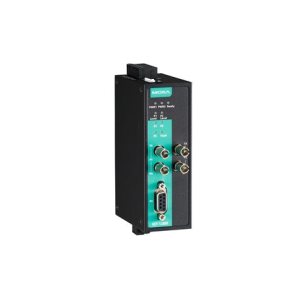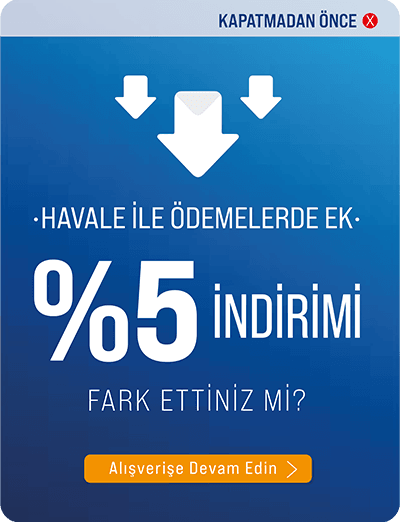ICF-1280I-S-ST
Industrial PROFIBUS-to-fiber converter, Single-mode, with ST connector, operating temperature range 0 to 60°C
Fast Delivery!
ICF-1280I-S-ST
Industrial PROFIBUS-to-fiber converter, Single-mode, with ST connector, operating temperature range 0 to 60°C
Features:
- Fiber ring backup with zero loss of time
- Diagnosis and diagnosis of problems in the entire fiber network via a single device
- Maximum 12 Mbps transmission, automatic baudrate identification
- Protection of the transmission line: Corrupted packets are detected and not sent to the next station.
- Fiber inverse function
- Alarm with relay output
- 2 kV galvanic isolation protection
- Redundant dual supply (reverse polarity connection protection)
- Extension of PROFIBUS transmission distance up to 45 km
ICF-1280I series industrial PROFIBUS - Fiber converters allow PROFIBUS signals to be carried to longer distances via fiber optic cables. With the converters, it can transmit up to 4km with multi-mode fiber cable and 45km with single-mode fiber cable. It offers uninterrupted and reliable communication with 2 KV isolation protection and dual supply input.
Remote Fiber Diagnostics
Fiber optic cabling is usually done for long distance communications, and a fiber optic test pen is used to verify that the fiber cable is of the required quality. With its Remote Fiber Diagnosis function, the ICF-1280I series eliminates the need for this test pen by using DIP switch settings. There are two primary functions provided by the Remote Fiber Diagnostics feature: (1) Identifying which side of the converter (Tx or Rx) is the source of the problem; (2) control of fiber links in the entire topology from any converter. Abnormalities in fiber cables are automatically detected and indicated by LED indicators, even if they do not occur in a location adjacent to the converter. Remote Fiber Diagnostics simplifies fiber cabling and management, while also greatly reducing troubleshooting time as it provides the ability to inspect fiber connections across the entire topology from any converter.
Redundant Ring Topology
The ICF-1280I series PROFIBUS-to-fiber converters can connect PROFIBUS devices into a redundant fiber ring topology. DIP switch is used to configure all ICF-1280I converters in Redundant Ring mode. When a PROFIBUS master device sends a signal from one converter to other PROFIBUS slave devices, the signal goes to all converters on the ring until it returns to the first converter and terminates. Redundant ring structure ensures packet loss and zero downtime.
Preventing Propagation to the Entire Network in Case of PROFIBUS Faults
When a PROFIBUS device fails or there is a glitch in the serial interface, electrical noise occurs, causing a bus failure. Conventional converters also transmit noise signals to other converters via fiber cable. This situation not only disrupts the data communication between the two buses, but also disrupts the communication of the entire system. In such a case, since the entire PROFIBUS network is disconnected, it is not easy to detect the device that is the source of the problem. ICF-1280I series converters have a mechanism that detects and recognizes noise signals to prevent such a situation. If there is a bus fault on one side, the noise signal cannot pass through the ICF-1280I converters and spread to other bus segments. In addition, ICF-1280I converters also trigger an alarm to signal the source of the problem to the field team.
Fiber Signal Strength Diagnostics
In some cases, it may be necessary to measure the receiver level of the fiber optic port with a voltmeter that can be connected while the device is operating (this does not affect data transfer). The measurement can be made with a voltmeter and read on a PLC using floating high impedance analog input, allowing you to:
1. Saving the incoming optical power for later measurements (e.g. it may show aging or damage)
2. Performing good/bad test (limit value)
Be the first to review this product!
Product not found.
Product not found.




